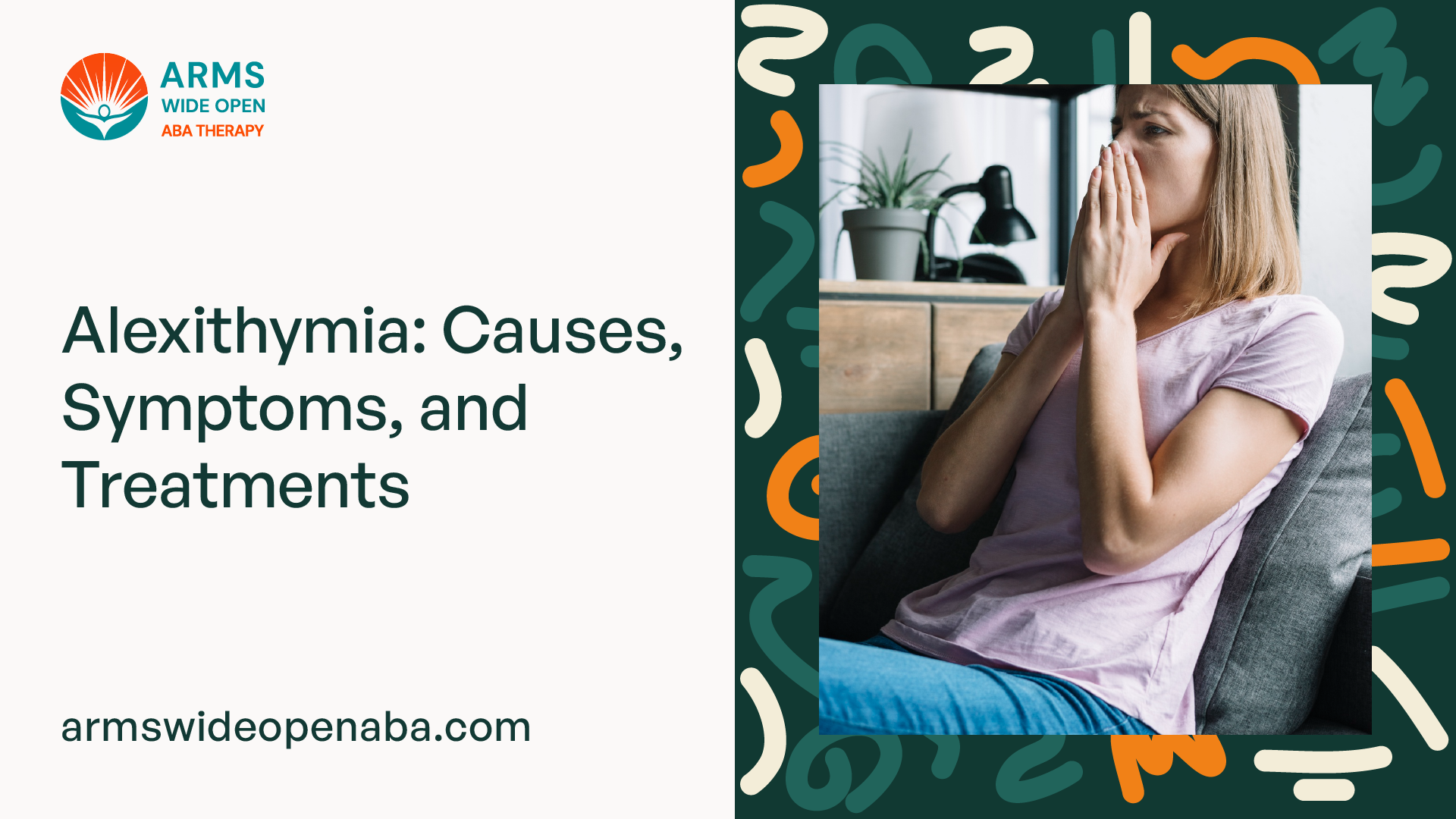Alexithymia: Causes, Symptoms, and Treatments
Unraveling the enigma of alexithymia: discover its causes, symptoms, and effective treatment options for emotional well-being.

Understanding Alexithymia
In order to gain insights into alexithymia, it is important to first understand its definition and the prevalence of this condition.

Defining Alexithymia
Alexithymia is a psychological phenomenon characterized by difficulties in recognizing, understanding, and expressing emotions. Individuals with alexithymia often struggle to identify their own emotions and have limited verbal emotional expression. This can make it challenging for them to connect with their own feelings and those of others.
Prevalence and Diagnosis
Causes of Alexithymia
Psychological Factors
Neurobiological Factors
Childhood Trauma and Developmental Factors
Symptoms of Alexithymia
Emotional Symptoms
- Difficulty describing emotions
- Feeling "numb" or emotionally detached
- Limited emotional responses to significant events
- Difficulty distinguishing between physical sensations and emotions
- Heightened anxiety or stress due to emotional confusion
Cognitive Symptoms
- Limited ability to understand non-verbal cues, such as facial expressions and body language
- Difficulty recognizing and interpreting emotions in others
- Reduced imaginative and fantasy life
- Tendency to focus on external details rather than emotional content
Interpersonal Difficulties
- Challenges in forming and maintaining close relationships
- Difficulty expressing love, affection, or empathy towards others
- Misinterpretation of others' emotions and intentions
- Tendency to appear emotionally distant or unresponsive
- Increased risk of conflicts and misunderstandings in relationships
Treatment Approaches for Alexithymia
Psychotherapy
Psychotherapy, also known as talk therapy, is a primary treatment . It involves working with a trained therapist to explore and address the emotional challenges associated with alexithymia. The goal of psychotherapy is to enhance emotional awareness, improve emotional regulation, and develop healthier coping mechanisms.
Some of the therapeutic techniques commonly used in the treatment of alexithymia include:
- Psychodynamic Therapy: This therapy focuses on exploring unconscious emotional conflicts and their impact on current emotional experiences. By bringing these unconscious processes to conscious awareness, individuals with alexithymia can gain insights into their emotions and develop better emotional understanding.
- Cognitive-Behavioral Therapy (CBT): CBT aims to identify and modify unhelpful thought patterns and behaviors associated with alexithymia. With the guidance of a therapist, individuals learn to challenge negative thought patterns and develop more adaptive coping strategies, leading to improved emotional recognition and expression.
- Mindfulness-Based Therapy: Mindfulness techniques, such as meditation and breathing exercises, can help individuals with alexithymia become more present and attuned to their emotions. By cultivating mindfulness, individuals can develop a greater sense of emotional awareness and acceptance.
Emotional Awareness and Expression Techniques
- Emotion-Focused Therapy: Emotion-focused therapy emphasizes the exploration and processing of emotions. Through guided exercises, individuals learn to identify and differentiate various emotions, increase emotional vocabulary, and express emotions in a safe and constructive manner.
- Art Therapy: Utilizing various artistic mediums, art therapy provides individuals with alexithymia a nonverbal means of expressing emotions. Engaging in art-based activities can help individuals tap into their inner emotional experiences and express them visually.
Medication Options
The table below provides an overview of the treatment approaches for alexithymia:

Living with Alexithymia
Coping Strategies
- Journaling: Keeping a journal can provide a safe space to explore and reflect on emotions, even if they are difficult to identify or express. Writing down thoughts and feelings can promote self-awareness and emotional processing.
- Mindfulness and meditation: Engaging in mindfulness practices can help individuals become more attuned to bodily sensations and subtle emotional cues. This can enhance their ability to recognize and regulate emotions.
- Seeking support from others: Sharing experiences and emotions with trusted friends, family members, or support groups can provide validation and understanding. Connecting with others who have similar challenges may also offer a sense of belonging and acceptance.
Support Systems and Resources
- Mental health professionals: Consulting with a therapist or counselor who specializes in alexithymia or emotion-focused therapy can provide valuable guidance and support.
- Support groups: Joining support groups or online communities dedicated to alexithymia can offer a sense of community and provide an opportunity to share experiences with individuals who can relate.
- Educational resources: Accessing books, articles, and websites that provide information on alexithymia can help individuals better understand their condition and learn coping strategies.
Promoting Emotional Well-being
- Engaging in regular self-care: Prioritizing activities that bring joy and relaxation can help improve overall emotional well-being. This may include hobbies, exercise, spending time in nature, or engaging in creative outlets.
- Developing emotional intelligence: While it may be difficult to identify emotions, learning about emotions and their impact on oneself and others can be beneficial. This can involve reading books or attending workshops on emotional intelligence.
- Seeking professional help: If alexithymia significantly impacts daily functioning or causes distress, seeking professional help from a mental health provider can be invaluable in developing personalized strategies for emotional well-being.
Sources
https://www.frontiersin.org/journals/psychology/articles/10.3389/fpsyg.2018.00645/full
https://neuro.psychiatryonline.org/doi/10.1176/appi.neuropsych.14070169
https://bpsmedicine.biomedcentral.com/articles/10.1186/1751-0759-6-21
Similar articles
We’re here to help you

Our team is here to assist you in this process. Contact us for any assistance.
it’s easy to apply
We Accept Most Insurances
Our in-network insurance partnerships make ABA therapy more accessible to families throughout our service areas.







Our Insurance Process
We'll request your insurance details to help us verify your plan's coverage for ABA therapy. Once we've received this information, we'll walk you through your benefits, including copayments, deductibles and out-of-pocket maximums, so you know what to expect in advance.
Our team will then handle the preauthorization and all the necessary paperwork.
.svg)





















.jpeg)


































.jpeg)




.jpeg)







.jpeg)











.jpeg)















